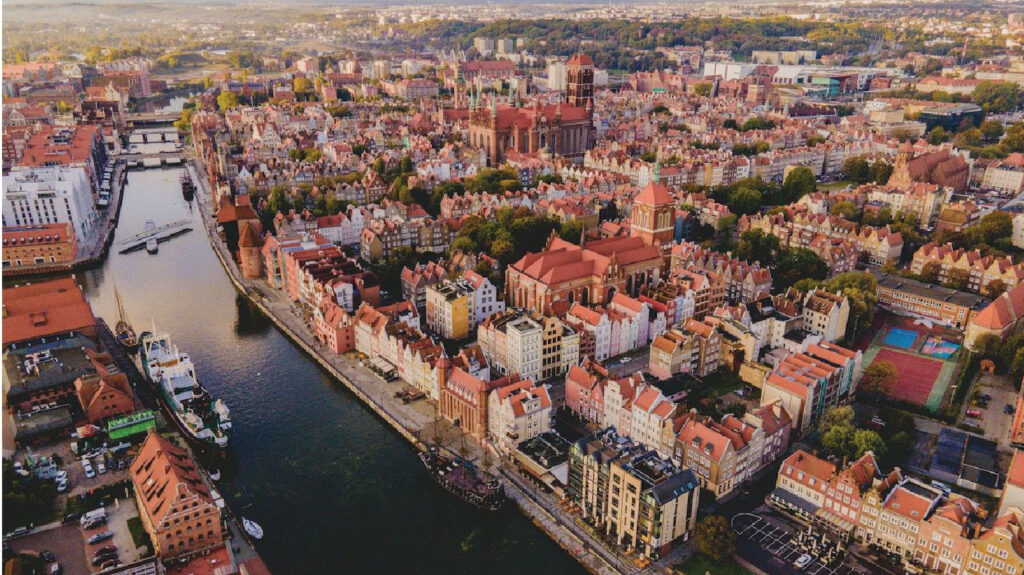
Inhabited by 486,000 people (1.3 million in metropolitan area), it is one of the largest cities in northern Poland and the Baltic Sea Region. The city’s population is growing slightly. As a result of the Ukrainian-Russian war, the number of inhabitants increased to 618,000.
Environmental Department at Municipal Office in Gdańsk, Polish Water (Gdańsk Water), Regional Water Management in Gdańsk (RZGW), Regional Inspectorate for Environmental Protection in Gdańsk, Regional Inspectorate of Construction Supervision in Gdańsk, Regional Road Transport Inspectorate in Gdańsk, Security and Crisis Management Department (Pomeranian Voivodeship Office), Maritime Office in Gdynia, the University of Gdańsk, Gdańsk University of Technology and Institute of Meteorology and Water Management.
Gdańsk is a cultural, scientific and economic center as well as a transport hub, and the capital of the Pomeranian Voivodeship. The city has the largest seaport in the country and the third largest airport in Poland for passenger traffic. The city is at crossroads of Europe’s road transport routes. The average age is 40.7 (2021). 30% of the population are elderly people and children under 5 years
of age constituting a group sensitive to climate change. The unemployment rate is 4%.
The climate is shaped by air approaching from North-Atlantic Ocean. Gdańsk’s hydrological system, combines three basic elements: the Vistula estuary, the Gulf of Gdańsk, and its lakes/streams. Flood hazards occur mainly from the Vistula, the Gulf of Gdańsk and various streams. Green areas in Gdańsk cover 24% of the area. More frequent flash floods, riverine, floods, and coastal floods, and sea level-rise are major threats. Strong wind,
intense storms and torrential rains affect the economy and human life. Urban floods can destabilize the city.
Gdańsk-Gdynia-Sopot Metropolitan Area Development Strategy by 2030; Spatial Development Plan for the Metropolitan Area, Transport and Mobility Strategy, Low-Carbon Economy Plan and the Adaptation Plan of the City to Climate Change 2030. Sectors included are water management, biodiversity, transport, residential areas, public health, vulnerable groups and energy. 2 important recent programs: Clean Air Programme and Small Retention Programme. A new approach to water management is implemented by Gdańsk Water by creating new reservoirs, parks, retention squares, rain gardens, grass basins and green roofs. The city is investing on waste utilization.
The most important are: lack of resources, lack of data, limited awareness, limited stakeholders engagement, too many actors responsible for climate action (different interests) and issues connected with ownership of land in the city.

